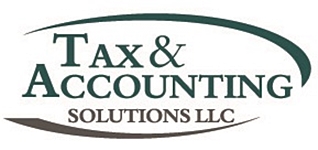An Age To Remember: Quick Tips
 Knowing key tax birthdays can help trim your annual tax bills. Below are some ages worth noting.
Knowing key tax birthdays can help trim your annual tax bills. Below are some ages worth noting.
Age 0
If your child is born during the year, even as late as 11:59 p.m. on December 31, you can claim a dependency exemption for your child. This comes with one catch. You need to file for the child’s social security number (SSN) and include it on your tax return. If you don’t, the dependency exemption is denied, along with any potential for certain tax credits. If your dependent doesn’t have and can’t get an SSN, you must show the individual taxpayer identification number (ITIN) or adoption taxpayer identification number (ATIN) instead of an SSN.
Ages 0-12
The good news is you gain tax advantages by contributing to your employer’s flexible spending account to cover child care expenses, or you may qualify for a child care credit on your tax return. The bad news is that any investment income over $2,100 in your child’s name is taxed at your rate until the child reaches age 27.
Age 13 Once your child reaches age 13, you no longer qualify to take the child care credit. Eligibility is determined on a daily basis.
Age 16
This is the last year your child qualifies you for the $1,000 child tax credit.
Age 18
If you own a business, you can pay your children to work for you and avoid paying Social Security and Medicare taxes on their wages. Once they reach age 18, you are required to withhold payroll taxes like any other employee.
Age 27
At this age, children are taxed at their own rates on investment income. In addition, they are no longer eligible for their parents’ health insurance benefits.
Age 50
Congratulations. Not only have you reached the half century mark, you can contribute an additional $1,000 to your IRA, bringing the total contribution limit to $6,500.
Age 55
You and your covered spouse are eligible to make an additional $1,000 contribution to your HSA.
Age 59.5
This is the magic age when you may take money from IRAs and retirement plans without incurring the additional 10% penalty for early distributions. There are exceptions to the penalties if you are younger, but this is the age when you may take penalty-free distributions for any reason.
Age 65
Once you reach age 65, you qualify for an additional standard deduction and, if certain conditions exist, a tax credit. For tax purposes, you are considered to reach age 65 on the day before your 65th birthday.
Age 70.5
At this age, you are required to begin distributions from your traditional IRA. If you have a Roth IRA, this rule doesn’t apply. If you have a retirement plan with your employer, you are still working, and you do not own more than 5% of the company, you can delay distributions even if you reach age 70½.

